Ghana
The Ghanaian government is seeking parliamentary approval for some GHc1.8 billion (approx. $480m) to support its 2016 budget following a shortfall in revenue.
The country’s Finance Minister, Seth Terkper revealed this when he presented a mid-year review of the government’s performance to parliament on Monday.
Ghana, which started producing oil in 2010, lost millions of dollars in revenue between March and May this year when production ground to a halt following a breakdown on an oil production ship in the offshore Jubilee field.
In the original budget for 2016, the government had asked for GHc50 billion (approx. $12.7m) to fund its expenditure. Challenges with raking in revenue from oil, the ongoing power crisis as well as a drop in commodity prices however made it impossible for the government to meet its target.
In spite of these challenges, the Finance Minister indicated that the government had achieved some feats, including a GDP growth of 3.9 percent at the end of 2015 which was better than the projected 3.5 percent.
“In spite of unanticipated shortfalls in price and production of crude oil, GDP growth is projected to end the year at 4.1 percent or better,” he told parliament.
The Finance Minister also noted that “on the basis of the revised revenue and estimates, the revised 2016 budget will result in an overall budget deficit of Ghc8,407.7 million (5 percent of GDP) same as the deficit of Ghc8,407.7 million (5.3 percent of GDP) in the original 2016 budget”.
This he said would “ensure that the pace of public debt accumulation remains as envisaged in the 2016 budget and in line with our debt sustainability objectives”. He said the country is also expecting an additional $75 million from the World Bank and increased financing of about $208 million from the International Monetary Fund (IMF) for budget support.
Seth Terkper attributed the decline in fiscal deficits to the fact that the government was “living within its means” explaining that the government was “borrowing less from the banks and capital markets and putting less pressure on interest rates”.
The Mahama-led administration has been criticized for what some term reckless borrowing over the years, a development critics of the government say imposed a heavy debt burden on the country.
Some economists had warned that the rate of government borrowing could lead the country back into the Highly Indebted Poor Country (HIPC) category.
A country whose debt-to Gross Domestic Product (GDP) ratio crosses the 70 percent mark is classified as HIPC by World Bank parameters.
But Seth Terkper in his address to parliament dismissed the assertion that Ghana was on the path to being classified HIPC.
“Since the declaration of HIPC in 2001 we were able to first, slow down the rate of growth of debt accumulation between 2014 and 2015; and second, now reverse course, with the debt-to-GDP ratio falling from 72 percent of GDP at end-2015 to 63 percent at end-May 2016” he said adding that “certainly, this is not the trajectory that will take the nation back to HIPC, as some had predicted only recently”.
With Ghana heading into an election in December, there are concerns the government’s spending would increase again, but the Finance Minister assured that “supplementary estimates will not result in automatic increases in budget allocation and expenditures”.
He said the government would continue to be prudent in its spending, “meet our obligations to contractors and suppliers, and realign our statutory funds to achieve our social intervention policies”.



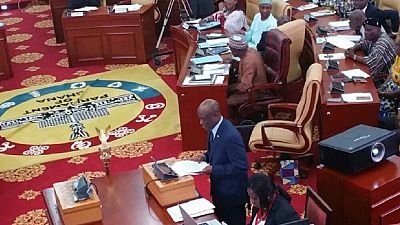

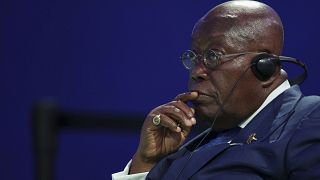
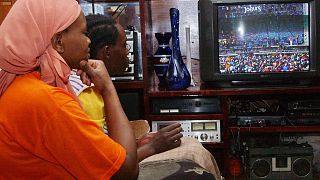
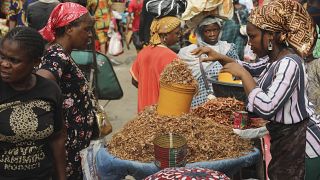
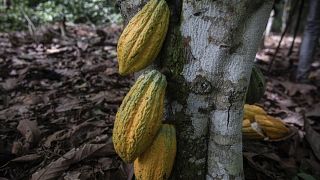
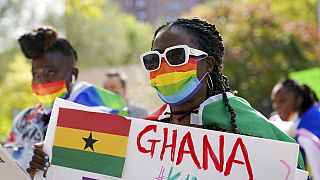
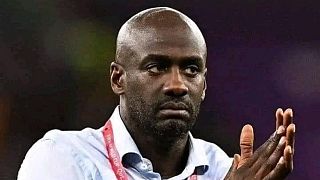
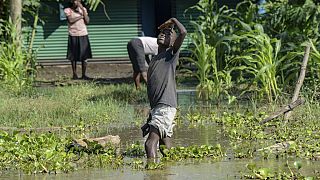
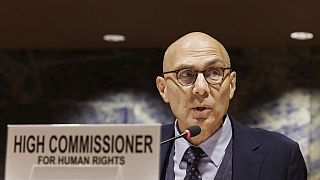

Go to video
Togo bans protests against arrest of opposition activists, constitutional reform
01:10
New poll finds support for South Africa's ruling ANC is plunging
01:14
Poll shows Egypt's March inflation figures expected to edge upwards
01:25
Zimbabwe unveils new currency as depreciation, inflation stoke turmoil
00:56
South Sudan president presses on holding elections as scheduled
11:11
Senegal: Diomaye Faye's economic challenges [Business Africa]